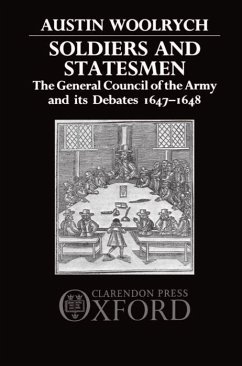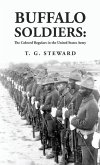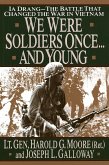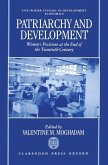In this study Professor Woolrych looks beyond such well-known occasions as the Putney debates to examine the whole political activity of Fairfax's and Cromwell's army between the first and second Civil Wars, and places it in its full context. He throws new light on the origins and proceedings of the agitators, and by clearly distinguishing between them and the new agents whom the Levellers sponsored in the autumn of 1647, he shows that the protagonists in the Putney debates, and even the issues, were not quite as they have seemed. Soldiers and Statesmen offers a reinterpretation of a critical turning-point in the Great Rebellion, and suggests that the army which eventually brought the king to the scaffold would have restored him to his throne if he had dealt with it in good faith.
Within a year of its victory over King Charles I in 1646, the New Model Army became a powerful force in English politics when it defied Parliament's orders to disband and set up its own democratic institution, the General Council of the Army. Its soldiers elected "agitators" as their spokesmen, who met with the generals to discuss not only the grievances of the army but also the settlement of the kingdom--contesting the very foundations of political authority. Shedding new light on the origins and proceedings of the agitators, Soldiers and Statesmen offers a reinterpretation of a critical turning point in the Great Rebellion, and suggests that the army which eventually brought the king to the scaffold would have restored him to his throne if he had given more weight to its offers.
Hinweis: Dieser Artikel kann nur an eine deutsche Lieferadresse ausgeliefert werden.
Within a year of its victory over King Charles I in 1646, the New Model Army became a powerful force in English politics when it defied Parliament's orders to disband and set up its own democratic institution, the General Council of the Army. Its soldiers elected "agitators" as their spokesmen, who met with the generals to discuss not only the grievances of the army but also the settlement of the kingdom--contesting the very foundations of political authority. Shedding new light on the origins and proceedings of the agitators, Soldiers and Statesmen offers a reinterpretation of a critical turning point in the Great Rebellion, and suggests that the army which eventually brought the king to the scaffold would have restored him to his throne if he had given more weight to its offers.
Hinweis: Dieser Artikel kann nur an eine deutsche Lieferadresse ausgeliefert werden.









